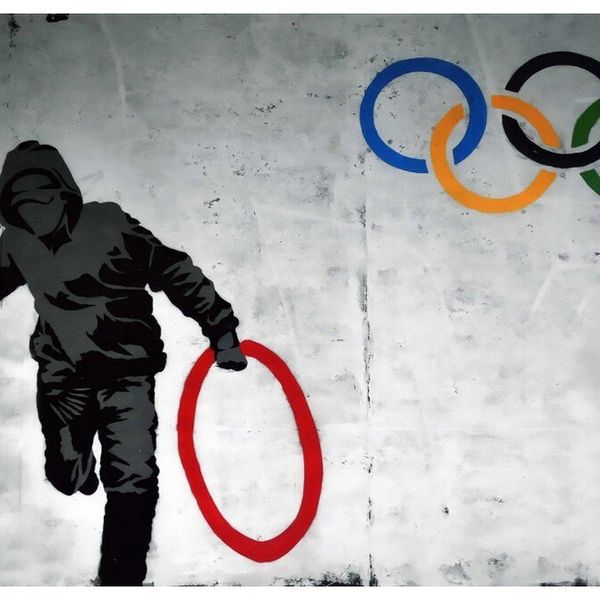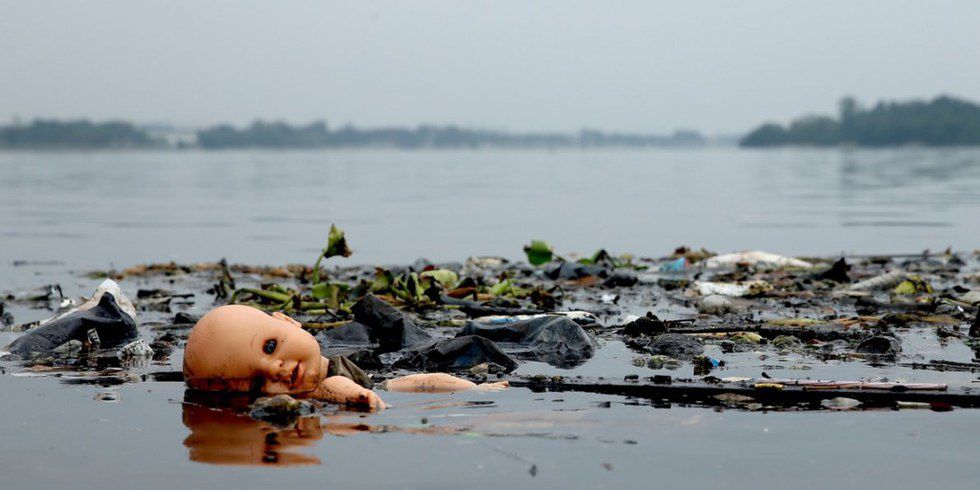No one is talking about how beautiful the city of Rio is. No one is talking about how great the Olympic games will be. Everyone is talking about the black cloud looming over the games. Pollution.
One of the more notoriously polluted areas in Rio is Guanabara Bay. Just in Guanabara Bay and the waterways leading into it there have been reports of plastic bottles, plastic bags, furniture and even dead bodies of dogs, horses and even humans.
“The Rio metropolis is basically using its waterways as a toilet,” said biologist Mario Moscatelli.
Despite the promise to clean up to 80 percent of the pollution when they were awarded the Olympic games years ago, a recent Associated Press study found that the water in Rio is “as filthy as ever, contaminated with raw human sewage teeming with dangerous viruses and bacteria.”
It is already considered unacceptable by many that the athletes will have to compete in the same waters that contains human waste and dead bodies, but now the bacteria level is even more alarming. Out of the millions of different types of bacteria in the water, scientists have now found a “super bacteria” that is drug resistant.
Researcher Renata Picao said that the bacteria entered the waterways through sewage that was redirected from hospitals. As for where the bacteria is being found, there is no surprise. “We found that threats occur in costal waters in a variety of concentrations and that they are strongly associated with pollution,” said Renata. Renata believes that there is no reason to believe anything has improved because untreated sewage still flows into the water.
Some athletes and coaches have been willing to voice their concern or disgust with the current situation in Rio.
“It’s disgusting,” said Nigel Cochrane, a coach for Spain’s women’s sailing team. “We’re very concerned.”
“It’s a nice sailing area, but every time you get some water in your face, it feels like there’s some alien enemy entering your face,” said German paralympic sailor, Heiko Kroger. “I keep my nose and lips closed.”
While many have voiced their concern, the waters have gotten worse. The reason is simple. It is more social than scientific, according to Paulo Rosman, a professor of costal engineering at the Federal University of Rio de Janerio.
“Everyone looks out into the water and says it’s a problem,” says Rosman. “Put your back to the bay, and you’ll see the problem. It’s as simple as that.” The problem Rosman is referring to is the millions of impoverished citizens living in the favelas. These people lack many sanitary services, like plumbing and garbage pick up. Without any sanitary services, all the waste ends up in the water.
“People there are fighting for survival,” says Rosman. They’re worried about quantity of life, not quality of life. They go to the bathroom and have to use plastic bags to clean up. Where do these plastic bags end up? The bay. It’s tragic.”
The conditions in which the athletes will have to compete, tourists will encounter and civilians have to live in sicken many. Mario Moscatelli and his team are just a few of those disgusted. “If the tide is low, if it raining and the winds come from the outside of the bay not even Jesus can do anything about it.”






















